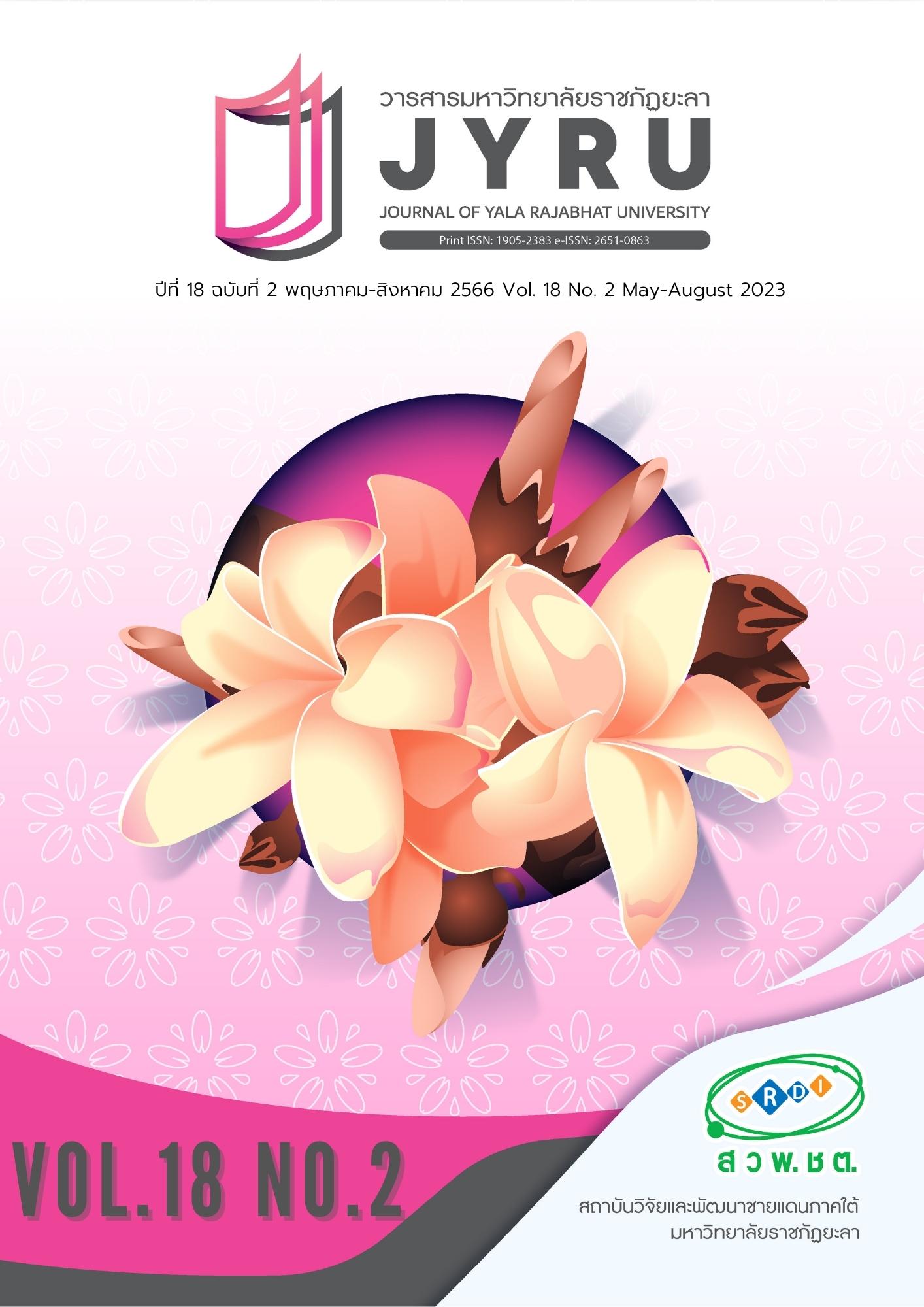Learning Management Based on the Concept of STEM Education Promoting Systemic Thinking Skills and Academic Achievement of Science Teacher Students Undertaking Computational Science for Science Teachers
Main Article Content
Abstract
This research aims to develop a learning management system based on the STEM education concept that promotes systematic thinking in science teachers, compare the systemic thinking skills of science teacher students before and after they engage in STEM-based learning activities, and compare the academic achievement of the teacher students before and after engaging in learning activities based on the STEM education concept. The participants in this study were 33 students studying computational science for science teachers. In order to promote systematic thinking skills, four learning management plans based on the STEM education model, seven open-ended questions of the systematic thinking skill test, and ten open-ended questions of the learning achievement test were employed as research instruments. The collected data were analyzed using descriptive statistics including mean score, standard deviation, and t-test (dependent sample). The research findings revealed that the efficiency score of the STEM-based learning management plans was 81.50/81.25, which is close to the standard requirement of 80/80, suggesting that this learning management plan is effective. Furthermore, the participating teacher students' systematic thinking abilities were found to be statically increasing at p-value=0.05, and the teacher students' academic achievement after receiving a STEM-based learning management that promotes systemic thinking skills in computational science courses was significantly higher than before at the 0.05 level.
Article Details

This work is licensed under a Creative Commons Attribution-NonCommercial-NoDerivatives 4.0 International License.
Copyright Notice articles, information, images, etc. was published in this Journal of Yala Rajabhat University is a copyright of the journal Yala Rajabhat University. If any person or deparment wants to bring all or part of it for publish or take any action. Authorization is required in written form from the Journal of Yala Rajabhat University only.
References
Chatchainanon, J. (2014). The development of instructional model to enhance systematic thinking skill of public health students. Ph.D Thesis. Silpakorn University. (in Thai)
DMC.TV. (2017). Hard & Soft skills 2017 must-have skills. [Online]. Retrieved May 4, 2022, from: https://xn--12cas3c2av3m3a0g7c.com/hard-softskills%E0%B8%97%E0%B8%B1%E0%B8%81%E0%B8%A9%E0%B8% B0%E0%B8%95%E0%B9%89%E0%B8%AD%E0%B8%87%E0%B8%A1%E0%B8%B5-%E0%B8%9B%E0% B8%B5-2017/ (in Thai)
Inthalapaporn, C., Phatphon, M., Wongyai, W., Phumsaat, S. (2015). Education and STEM learning management guidelines for elementary school students. Veridian E-Journal, 8(1), 61-73. (in Thai)
Jutharot, M. (2012). Concepts and principles of thinking. Retrieved on November 16, 2021, from:
http://www.bcnsurin.ac.th/e-teacher/data/HgPY3MJFri91650.doc
Karimi, S. (2017). Using engineering design process to enhance creativity and problem-solving skills. institute for the promotion of teaching science and technology magazine, 46(209), 23-27. (in Thai)
Khechornphak, B. (2015). The development of systems thinking model for pre-service teacher Rajabhat Mahasarakham University. Master's Degree. Rajabhat Mahasarakham University. (in Thai)
Kitkuakun, S. (2015). STEM education. Journal education Naresuan university, 17(2), 201-207. [Online]. Retrieved November 10, 2021, from: https://so06.tcithaijo.org/index.php/edujournal_nu/article/view/33370. (in Thai)
National STEM Education Center. (2015). STEM education network guide. Bangkok: Institute for the Promotion of Teaching Science and Technology, Ministry of Education. (in Thai)
National Research Council. (2012). A framework for K-12 science education: practices, crosscutting concept, and core ideas. committee on new science education standards, board on science education, division of behavioral and social science and education. Washington, DC: National Academy Press.
Patcharachompu, P., Pranee, C.& Panawong, S. (2016). A development of instructional model to enhance the system thinking ability for high vocational certificate curriculum students. Journal of Graduate Studies in Northern Rajabhat Universities, 7(12), 117-132. (in Thai)
PhuWorawan, Y. (2015). Knowing the media Information literacy is at the heart of 21st century learning. [Online]. Retrieved October 22, 2021, from:https://www.nstda.or.th/nac/2016/index78d3.html?pageid=661. (in Thai)
Saengpromsri, P. (2015). Comparisons of learning achievement, integrated science process skills, and attitude towards chemistry learning for Matthayomsueksa 5 students between STEM education and conventional methods. Journal of Education, Mahasarakham University, 9(Special issue), 401-419. (in Thai)
Senge, P.M. (1993). The fifth discipline: The art & practice of the learning organization. London: Century Business.
SO-IN, R. (2019). The development of system thinking by using a project-based learning package on social study for secondary III students of theeparatpittaya school in Kon Samui of Suratthani. Master's Degree. Suratthani Rajabhat University. (in Thai)
Srikhamwiang, W. (2018). Computing science (Online). Retrieved November 1, 2021, from: https://www.scimath.org/lesson-technology/item/8808-computing-science. (in Thai)


